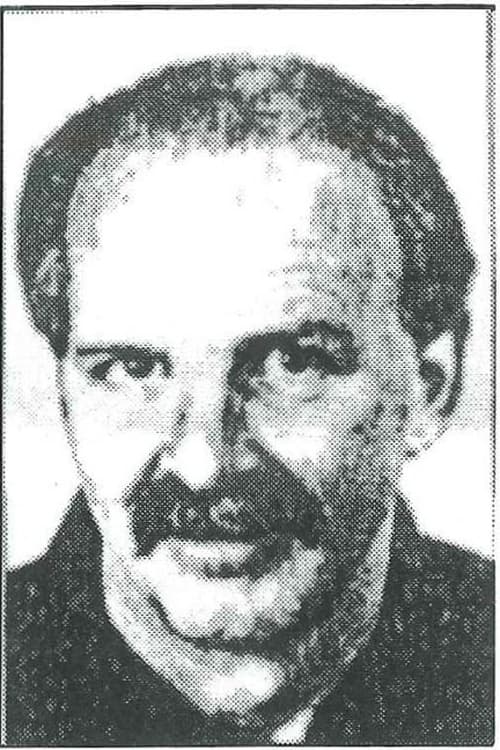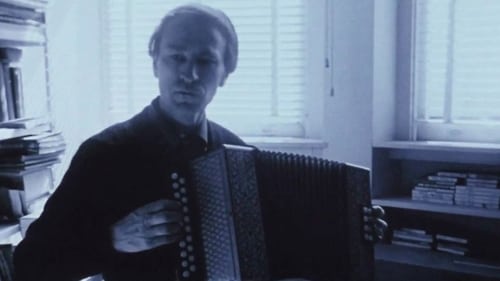
Standish Lawder
Nascimento : 1936-01-01, Connecticut, USA
Morte : 2014-06-21
História
Born in Connecticut in 1936, Lawder attended Williams College and the National Autonomous University of Mexico as an undergraduate, and studied at the Ludwig Maximilian University of Munich. While at the University of Munich, he became a test subject for a neurologist researching phosphenes at around 1960. During these experiments, he was injected with measured amounts of LSD, mescaline and psilocybin, and "spent a whole day in the clinic". In this, he became an early subject of psychedelics. Afterwards, he received his Doctor of Philosophy as an art historian at Yale University. His thesis, which was later published as The Cubist Cinema, examines the correlation between the history of film and its impact on modern art, described as a holistic overview by Anthony Reveaux inFilm Quarterly. His body of work is purported to span over 25 films and his literary works encapsulates several essays on experimental film. His first endeavors with experimental films started in his basement during a sabbatical of his in the late 1960s and early 1970s.

Director
CINEMA16 celebrates the short film by showcasing some of the best classic and award-winning shorts on DVD. With over three hours of films CINEMA16: AMERICAN SHORT FILMS is essential viewing for anyone with an interest in the moving image. Films include Gus Van Sant's 1982 adaptation of a William S. Burroughs short story, The Discipline Of DE, Tim Burton's early stop motion animated classic Vincent, George Lucas' USC short Freiheit, Alexander Payne's previously unreleased UCLA graduation short Carmen, Paperboys by Mike Mills, D.A. Pennebaker's Duke Ellington scored Daybreak Express, Todd Solondz's NYU short Feelings, along with Oscar Winner The Lunch Date by Adam Davidson, Stefan Nadelman's multi- award winning documentary Terminal Bar, Joe Nussbaum's cult classic George Lucas In Love and 2006 Sundance Winner The Wraith Of Cobble Hill by Adam Parrish King. Films are subtitled in French, German, Italian, Spanish and Japanese, and include commentaries from many of the directors involved.

Director
Made in 1988 at the University of California, San Diego in Standish Lawder's Experimental Film course.

Director
Made for Intercat '73, Pola Chapelle's Cat Film Festival in New York. In the early 70's, a New York cat-lover and film-maker named Pola Chapelle produced a "Cat Film Fesitval:" which was shown in a large downtown NYC auditorium to an audience of more than a thousand cat-lovers. At the time, I lived with my wife Ursula and our daughters Katy and Cynnie, together with many, too many cats. I loved my family but not the cats. -SL

Director
Standish Lawder's four minute abridgement of D.W. Griffith's 1916 colossus. Processed "entirely automatically" and 'skip-printed' on homemade hardware, Intolerance is played at a speed and rhythm "as fast as possible, and yet one can still follow the narrative continuity of the film itself"; According to Lawder, "A kind of classic comic condensation, an encapsulation of this grand monument". Premiered in 1973 on television on Screening Room with Robert Gardner, to a lukewarm reaction from those present.

Director
RAINDANCE plays directly on the mind through programmatic stimulation of the central nervous system. Individual frames of the film are imprinted on the retina of the eye in a rhythm, sequence, and intensity that corresponds to Alpha-Wave frequencies of the brain.

Director
I had long wanted to make a film on Hans Richter who has been an important figure in my life, and this is the result. Almost unedited, it was shot one summer Sunday afternoon in 1968 at a picnic with friends and relatives. Jonas Mekas was also shooting the event, and his version is included in his recent films "Diaries," "Notes" and "Sketches."

Director
Further examining the medium of film itself, Colorfilm is a work Lawder made while trying to make a minimalist, "pure color" film. Using spliced-together strips of colored film leader in white, yellow, blue, red, green, etc., Lawder ran the film through a projector and found the results to be quite boring. While he was running the film, though, he noticed how beautiful the colored strips of film looked as they ran through the projector. So, he turned a camera on the projector and filmed the colored film gorgeously winding its way through the projector's machinery." - Noel Black, Colorado Springs Independent

Director
Made from some footage I shot on a family vacation way back in 1949. It features my brother Doug and a horse whose name I've forgotten. A circular cybernetic study film. (Standish Lawder)

Director
A spectacularly silly film of animated outrageousness. Why not do it in the road?

Editor
An unknown observer is seen traveling through a bleak corridor. At the end of the corridor they see a naked woman, whom they are unable to reach as their trip seems to become increasingly twisted and looped.

Director
Made entirely from old classroom instructional films, Dangling Participle offers a wealth of practical advice on contemporary sexual hang-ups and where they come from.

Director
An unknown observer is seen traveling through a bleak corridor. At the end of the corridor they see a naked woman, whom they are unable to reach as their trip seems to become increasingly twisted and looped.

Director
The faces of a 5:00 PM crowd descending via the Pan Am building escalators in one continuous shot. In old-fashioned black and white, these faces stare into the empty space, in the 5:00 PM tiredness and mechanical impersonality, like faces from the grave.

Director
Played on a distant television screen in the dark (with some additional zooms by Lawler), 'Runaway' mainly consists of looped footage of what looks like a Fleischer or Terry cartoon, in which a group of dogs, intrigued by surrounding sounds, run to the left of the screen, and then to the right, back and forth, while a frenzied, spiraling organ score plays over the top. The scene eventually begins to warp and disintegrate. The result is equal parts mind-numbing and hypnotic.

Self
An epic portrait of the New York avant-garde art scene of the 60s.

Director
A compilation job, a construction film, a treasure chest of bizarre and amusing footage, gathered from the entire range of the history of cinema.

Director
Standish Lawder's The March of the Garter Snakes effectively demonstrated that a slide can produce kinetic experiences.




